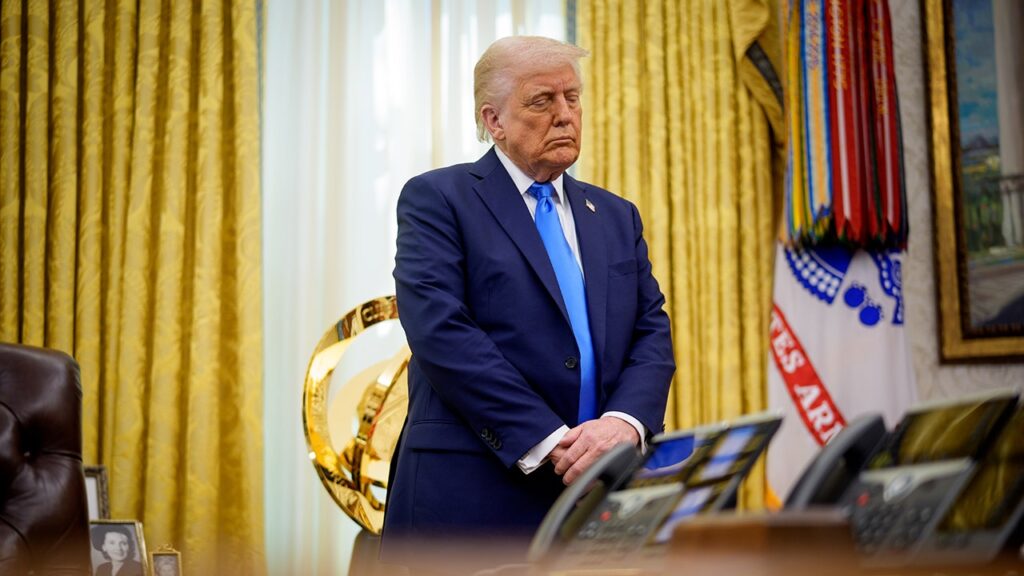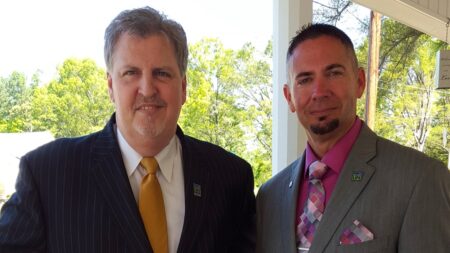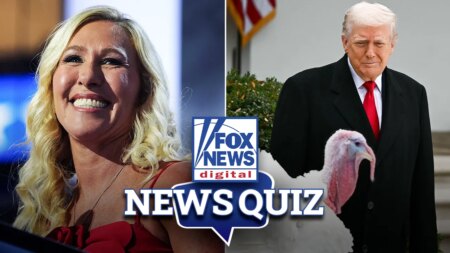During the observance of Holy Week, President Donald Trump has not only embraced his leadership role over the nation but has also strongly asserted his belief in a divine purpose behind his presidency. This intensification of spiritual conviction comes particularly after Trump survived an assassination attempt last year, which he views as a miraculous event. “I believe that my life was saved that day in Butler for a very good reason,” Trump proclaimed during a recent address to Congress, emphasizing his belief that God has a special plan for him in making America great again.
As Trump’s spiritual reflections deepen, he has made it a focal point of his political narrative, especially apparent during events such as the National Prayer Breakfast in February. Here, he expressed a newfound vigor in faith, stating, “It changed something in me, I feel. I feel even stronger.” This introspection follows the traumatic experience of the assassination attempt, which he believes was not merely an accident but, rather, divine intervention at play. He recounted how he miraculously turned his gaze at just the right moment, asserting, “God did that. I mean, it had to be.”
Trump’s family, notably his son Donald Trump Jr., shares this belief in a protective divine force, contextualizing the incident as having odds comparable to “missing a one-foot putt.” This reinforces the narrative within Trump’s circle that his survival was a clearly orchestrated act of divine will rather than mere luck. Trump reflects fondly on his Presbyterian upbringing, citing it as the bedrock of his morality and sense of purpose throughout his life. At the 2024 National Faith Summit, he reminisced about Sunday school, the impact of figures like Billy Graham, and the strong religious values instilled by his Scottish mother and affectionate father. “I was blessed to be raised in a churched home… and that faith lives on in my heart every single day,” Trump stated, underlining how crucial this upbringing is not only for him but for the broader American populace.
In recent years, Trump has increasingly sounded the alarm regarding what he perceives as America’s spiritual decline. In an August 2024 conversation with Laura Ingraham of Fox News, he candidly expressed concern over the diminished role of religion in society. “One of the reasons that our country has lost, sort of, everything… is we don’t have religion to the same extent,” he lamented. Trump has pointed to the government’s actions regarding religious practices during the COVID-19 pandemic as a critical marker of this decline, describing the restrictions on gatherings as “fascist” actions that have negatively impacted organized religion, which he sees as essential for providing hope and moral guidance.
At events such as the Faith and Freedom Coalition, Trump has passionately communicated the importance of religion, declaring, “Religion is going down in terms of importance and popularity.” He believes that faith plays a vital role in maintaining personal integrity and societal goodness, linking its dilution to a loss of civility and kindness in society. Throughout his presidency, Trump has articulated a commitment to religious liberty, assuring audiences of his unwavering support for their right to practice faith freely, which he declared at the onset of his first term in 2017.
Additionally, he has taken international religious freedom issues to heart, especially the plight of persecuted Christians around the world, affirming a moral obligation to assist them. In interviews, Trump has highlighted the struggles faced by Christians in regions like Syria and pledged to help those suffering oppression for their beliefs.
Ultimately, Trump’s message intertwines America’s foundational ideals with faith, asserting that the nation’s rights are granted by a higher power, encapsulated in phrases like “one nation under God.” Throughout his political career, and particularly as he embarks on his second term, Trump’s rhetoric has become increasingly personal, reflecting his belief that he is fulfilling a divine mission as he shapes the course of the country. “I believed in God… but now something happened,” he concluded, signaling a profound transformation in his faith and his understanding of his role as a leader.
Jasmine Baehr, a writer at Fox News Digital and a military spouse based in New Orleans, invites readers to engage with these narratives as they unfold, emphasizing the complex interplay of faith and politics in contemporary America.











